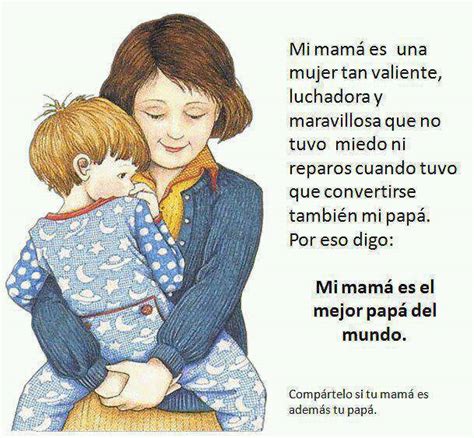El Padre De Mi Madre Es Mi
Breaking News Today
Mar 27, 2025 · 4 min read

Table of Contents
El Padre de mi Madre es mi… ¿Abuelo? Understanding Family Trees and Terminology
The seemingly simple question, "El padre de mi madre es mi...?" often trips up those unfamiliar with Spanish family terminology or those simply needing a refresher. The answer, of course, is abuelo (grandfather). However, this seemingly straightforward question opens a door to a fascinating exploration of family structures, relationships, and the beautiful complexity of language itself. This article delves into the intricacies of Spanish family terms, offering not just the answer to the initial question but a broader understanding of how to navigate familial relationships in Spanish.
Deconstructing "El Padre de mi Madre"
Let's break down the phrase itself:
- El: The definite article "the."
- Padre: Father.
- de: Of.
- mi: My.
- Madre: Mother.
Therefore, the phrase literally translates to "the father of my mother." This structured approach is crucial for understanding and constructing similar phrases to describe other familial relationships.
Expanding Our Family Vocabulary: Key Spanish Family Terms
Understanding "abuelo" is just the beginning. Spanish boasts a rich vocabulary for describing family members, offering nuances not always present in English. Here's a breakdown of key terms, categorized for clarity:
Grandparents:
- Abuelo: Grandfather (father's side)
- Abuela: Grandmother (father's side)
- Abuelo materno: Maternal grandfather (mother's father) - This is the direct answer to our initial question!
- Abuela materna: Maternal grandmother (mother's mother)
- Abuelo paterno: Paternal grandfather (father's father)
- Abuela paterna: Paternal grandmother (father's mother)
Parents:
- Padre: Father
- Madre: Mother
Siblings:
- Hermano: Brother
- Hermana: Sister
Aunts and Uncles:
- Tío: Uncle (father's brother or mother's brother)
- Tía: Aunt (father's sister or mother's sister)
- Tío materno: Maternal uncle (mother's brother)
- Tía materna: Maternal aunt (mother's sister)
- Tío paterno: Paternal uncle (father's brother)
- Tía paterna: Paternal aunt (father's sister)
Cousins:
- Primo: Cousin (male)
- Prima: Cousin (female)
- Primo hermano: First cousin (male) - sharing a grandparent
- Prima hermana: First cousin (female) - sharing a grandparent
Nieces and Nephews:
- Sobrino: Nephew
- Sobrina: Niece
Other Important Terms:
- Familia: Family
- Pariente: Relative
- Suegro/a: Father/Mother-in-law
- Yerno: Son-in-law
- Nuera: Daughter-in-law
Beyond the Basics: Nuances in Family Relationships
Spanish family terms often go beyond simple biological relationships. Consider these examples:
- Padrastro: Stepfather
- Madrastra: Stepmother
- Hijastro: Stepsons
- Hijastra: Stepdaughter
- Padrino/Madrina: Godfather/Godmother – These individuals hold significant cultural importance in many Hispanic cultures, acting as spiritual guides and mentors.
Cultural Context and Variations
The use of family terms can also vary depending on regional dialects and cultural contexts. While the terms listed above are widely understood throughout the Spanish-speaking world, there might be subtle variations or alternative terms used in specific regions.
Practical Application: Constructing More Complex Phrases
Using the foundational vocabulary and grammatical structures, we can create more complex phrases to describe extended family relationships:
- La hermana de mi madre es mi tía: My mother's sister is my aunt.
- El hijo de mi hermano es mi sobrino: My brother's son is my nephew.
- La esposa de mi tío es mi tía política: My uncle's wife is my aunt-in-law.
Mastering Spanish Family Terms: Tips and Tricks
Learning Spanish family terms requires consistent effort and practice. Here are some helpful strategies:
- Use flashcards: Visual aids are excellent for memorization.
- Create family trees: Draw your own family tree in Spanish, labeling each member with the appropriate term.
- Immerse yourself: Surround yourself with Spanish-language media, such as movies, TV shows, and music.
- Practice with native speakers: The best way to improve your fluency is to interact with native speakers. Engage in conversations about family, ask questions, and correct any mistakes.
The Importance of Family in Hispanic Culture
Understanding Spanish family terms is not just about linguistic accuracy; it's about appreciating the profound importance of family in Hispanic cultures. Family ties are often deeply ingrained, with extended family playing a significant role in daily life, celebrations, and support systems. Respect for elders is highly valued, and maintaining strong familial bonds is a cornerstone of many Hispanic communities.
Conclusion: More Than Just Words
The question, "El padre de mi madre es mi...?" serves as a springboard for exploring the rich tapestry of Spanish family terminology. Mastering these terms unlocks a deeper understanding of Hispanic culture and provides invaluable tools for communication and connection. Beyond simply learning the words, strive to understand the cultural context, the nuances, and the significant role family plays in the lives of Spanish speakers. The journey of learning a language is a journey of cultural discovery, and exploring family vocabulary is a vital step on that path. By continuing to learn and practice, you'll not only expand your linguistic abilities but also gain a deeper appreciation for the diverse and vibrant world of Hispanic cultures. Remember, it's not just about knowing the words; it's about understanding the relationships they represent and the stories they tell.
Latest Posts
Latest Posts
-
Texas Cdl Test Questions And Answers Printable Pdf
Mar 30, 2025
-
A Good Rider Is Best Described As One Who
Mar 30, 2025
-
The Formula To Determine The Materials To Be Purchased Is
Mar 30, 2025
-
An Appropriate Following Distance For Most Vehicles Is
Mar 30, 2025
-
Optic Chiasm Fornix Interthalamic Adhesion Mammillary Body Hypothalamus Thalamus
Mar 30, 2025
Related Post
Thank you for visiting our website which covers about El Padre De Mi Madre Es Mi . We hope the information provided has been useful to you. Feel free to contact us if you have any questions or need further assistance. See you next time and don't miss to bookmark.
